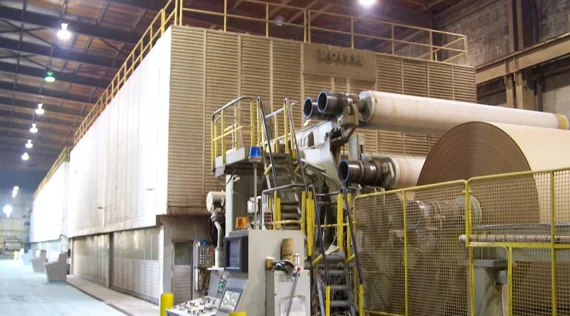
SEATTLE (Waste 360): For the paper recycling industry, like other commodities niches, COVID-19 has driven extraordinary circumstances rarely or never seen, resulting in a state of constant flux. And experts don’t yet know the net effect.
Demand for recovered paper is red hot to cold, depending on end markets. China, which drastically cut imports a couple years ago, has now stepped up purchases, and its paper mills are asking U.S. and other overseas suppliers for more material. Meanwhile, some recyclers who were selling tissue and toweling to away-from-home customers (venues, offices, etc.) that have shut down are hustling to shift to stay-at-home markets, where products are flying off the shelves.
Corrugated in particular is seeing a boon. Some mills can’t get enough of this material, and as they fight for market share, they are paying higher premiums or paying premiums for the first time.
“Corrugated was staggering at $35 per ton in the Midwest for months and went up in March mainly because the export market got strong in Asia. I expect prices will continue to rise in April due to diminishing supply and increasing domestic demand,” says Leonard Zeid, executive vice president of marketing and brokerage for Midland Davis Corporation, a scrap paper, metal and plastic brokerage with a processing plant in Moline, Ill.
Chinese mills are asking their government to increase quotas of allowable imports, and sometimes, they are asking for licenses to purchase a certain tonnage of corrugated upfront, rather than space out licenses over the year.
“They are saying we need paper now. Their mills were not shut down, but their supply was,” saysZeid.
Recyclers face somewhat of a catch-22: while demand is high for some commodities, substantially less material is being generated, at least from “nonessential” businesses that have closed or slowed their operations.
What has become one of the nation’s hottest consumer products—toilet paper—is a good example of radical shifts in supply and demand. Shuttered offices mean less supply of feedstock—office paper is often incorporated into toilet paper—and it also means less commercial toilet paper purchases. Though this dynamic may have less impact on recyclers supplying retailers, despite the hot demand; retail toilet paper brands overall incorporate less recycled fiber.
The origin of feedstock impacts supply of many fibers, particularly corrugated.
Courtesy: www.waste360.com



| Copper Scrap View All | |
| Alternator | 0.40 (0) |
| #1 Copper Bare Bright | 4.20 (0.03) |
| Aluminum Scrap View All | |
| 356 Aluminum Wheels (Clean) | 0.80 (-0.01) |
| 6061 Extrusions | 0.70 (-0.01) |
| Steel Scrap View All | |
| #1 Bundle | 360.00 (0) |
| #1 Busheling | 380.00 (0) |
| Electronics Scrap View All | |